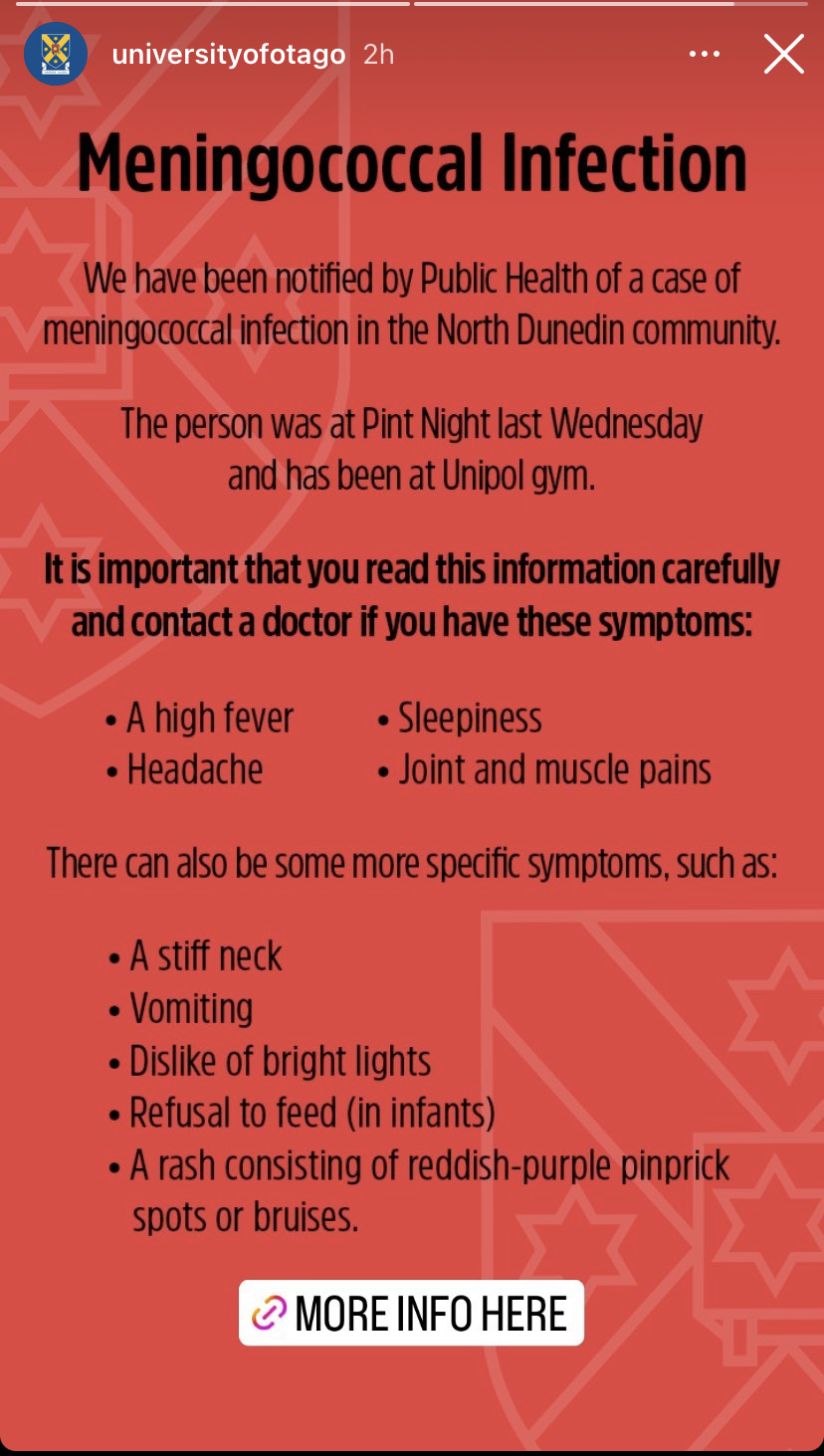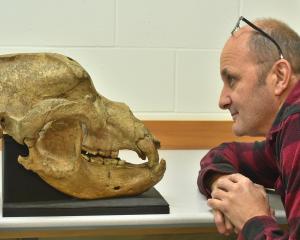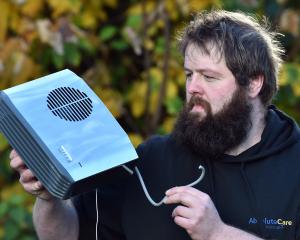The University of Otago is advising of a meningococcal infection in the North Dunedin community.
In a social media post this evening, the university said it had been notified of the case by Public Health.
The person was at Pint Night at the university's U-Bar last Wednesday, and has visited Unipol gym.
The university advised people to contact a doctor if they were unwell.

General information for meningococcal infection
Meningococcal infection is a bacterium carried, usually harmlessly, in the nose and throat by up to 15% of people. However, occasionally carriers may pass it onto others who have been in close contact with them.
Only a very small number of people in contact with ‘carriers’ develop meningococcal disease. If this does happen, it may take up to ten days for symptoms to develop.
The bacteria are difficult to spread; it passes from person to person by regular close, prolonged contact. Contact with saliva from the front of the mouth, teeth or lips rarely passes the bacteria on.
Only people who have been in prolonged or very close contact with a suspected or confirmed case need to take special antibiotics to clear the bacteria from the back of the throat.
These people include household contacts (including those who have stayed overnight in the house in the seven days before the person became unwell), intimate contacts such as boyfriend/girlfriend/sexual partner, and healthcare workers exposed to respiratory secretions during procedures.
This ‘clearance’ antibiotic does not treat the disease in a person who is already developing the infection.
While the risk of developing infection is very low, it is important to seek medical advice immediately if you develop any of the symptoms of meningococcal disease. Meningococcal disease can be difficult to diagnose because it can look like other illnesses, such as the flu.
Symptoms of meningitis can develop suddenly and include:
• A high fever
• Headache
• Sleepiness
• Joint and muscle pains.
There can also be some more specific symptoms, such as:
• A stiff neck
• Dislike of bright lights
• Vomiting
• Crying
• Refusal to feed (in infants)
• A rash consisting of reddish-purple pinprick spots or bruises.
Even if you have had a meningococcal vaccine, you still need to look out for symptoms, because the vaccines do not protect against all meningococcal strains.
Please contact the Public Health Unit if you have any further questions.
If you are unwell, do not wait to call the Public Health Unit – it is important to see a doctor immediately.
Further Information - NZ Ministry of Health website:
http://www.health.govt.nz/your-health/conditions-and-treatments/diseases...











